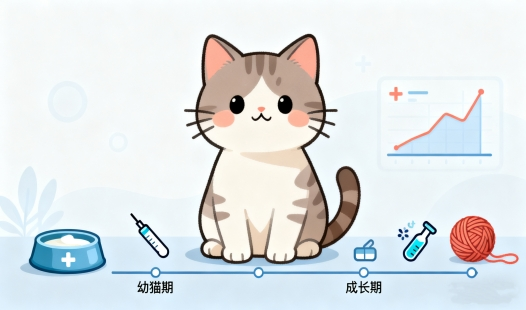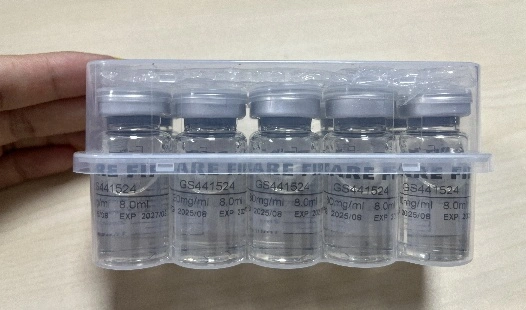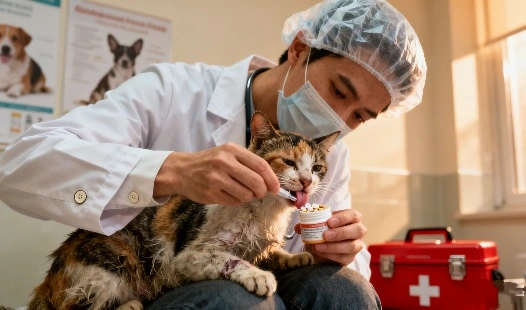Once thought to be a universally fatal disease for cats, Feline Infectious Peritonitis (FIP) has seen a turning point in treatment options with the emergence of antiviral GS 441524 FIP. This compound has demonstrated exceptional promise in helping infected cats recover, transforming what was once a hopeless diagnosis into a treatable condition. The success of GS-441524 has sparked widespread interest among veterinary researchers, inspiring the search for additional antiviral agents that could match or even surpass its effectiveness. Scientists are now exploring novel molecular structures, improved delivery methods, and potential combination therapies to enhance outcomes and reduce relapse rates. This article delves into the most recent developments in FIP treatment research, examining both the mechanisms and the evolving range of alternatives that may shape the future of antiviral therapy for cats.

Next-Generation FIP Treatment Research
Advancements in antiviral drug development
Researchers are making significant strides in developing new antiviral drugs to combat FIP. These efforts focus on improving efficacy, reducing side effects, and enhancing delivery methods compared to GS-441524.
Targeting viral replication mechanisms
Scientists are investigating compounds that target specific mechanisms of coronavirus replication. By interrupting key stages of the viral life cycle, these new drugs aim to provide more targeted and effective treatment options for FIP.
Exploring combination therapies
Some research teams are examining the potential of combination therapies, using GS-441524 alongside other antiviral agents or immune modulators. This approach may lead to more comprehensive treatment protocols for fip medication.

Promising compounds in clinical trials
GC376: A protease inhibitor
GC376 is one of the most promising experimental treatments being studied for feline infectious peritonitis (FIP). As a protease inhibitor, it works by targeting and blocking a key viral enzyme responsible for processing viral proteins essential for replication. By inhibiting this enzyme, GC376 effectively disrupts the virus's ability to multiply and spread within the cat's body. Early clinical trials have shown encouraging results, with some cats achieving significant clinical improvement and prolonged survival times. However, researchers are still evaluating its long-term safety, optimal dosage, and potential resistance issues before it can become a widely accepted treatment option for FIP.
Nucleoside analogs
Research on the efficacy of several novel nucleoside analogs against FIP is ongoing. These compounds are structurally and functionally related to the antiviral GS 441524. When these chemicals are integrated into a virus's DNA, they cause the viral RNA production to stop too soon because they imitate the natural nucleotides. By blocking viral replication, this process aids in infection control. Some of these analogs may outperform GS-441524 in terms of stability, bioavailability, or effectiveness, according to preliminary research. To improve treatment results for FIP cats, researchers are also looking at combination therapies that combine these analogs with other antiviral or immune-modulating drugs.
Remdesivir derivatives
Remdesivir derivatives represent another exciting avenue in FIP treatment research. Since GS-441524 is the active metabolite of remdesivir, scientists are modifying its structure to enhance pharmacokinetics and safety profiles for veterinary use. These new derivatives are designed to improve absorption, extend half-life, and reduce potential side effects while maintaining or even enhancing antiviral activity. Preliminary findings suggest that certain remdesivir-based compounds could offer a faster onset of action and greater tissue penetration, making them valuable candidates for future FIP therapy. Ongoing studies will determine whether these derivatives can surpass GS-441524 in both effectiveness and convenience for feline patients.

Future Outlook For FIP Therapy
Personalized treatment approaches
As our understanding of FIP pathogenesis improves, researchers are exploring personalized treatment approaches. This may involve tailoring antiviral regimens based on the specific strain of the virus or the individual cat's immune response.
Novel drug delivery systems
Innovative drug delivery systems are being developed to enhance the efficacy of fip medication. These may include long-acting formulations or targeted delivery methods to reduce the frequency of administration and improve compliance.
While current research focuses primarily on treatment, some scientists are investigating preventive strategies. This includes the development of vaccines or prophylactic medications to protect cats at risk of FIP.

The landscape of FIP treatment is rapidly evolving, with numerous promising avenues being explored. While GS-441524 remains a cornerstone of current therapy, ongoing research into new antiviral compounds offers hope for even more effective and accessible treatments in the future. As these potential alternatives progress through clinical trials, veterinarians and cat owners can look forward to an expanding array of options for combating this once-devastating disease.
FAQ
1. How do new antiviral drugs for FIP compare to GS-441524?
New antiviral drugs in development aim to improve upon GS-441524's efficacy, reduce side effects, or offer alternative mechanisms of action. While GS-441524 remains highly effective, these new compounds may provide additional options for treating FIP, especially in cases where GS-441524 is less effective or not well-tolerated.
2. When might new FIP treatments become available?
The timeline for new FIP treatments varies depending on the stage of research and clinical trials. Some compounds may become available within the next few years, while others are still in early stages of development. It's important to note that rigorous testing is required to ensure safety and efficacy before any new treatment can be approved for widespread use.
3. Will new antiviral drugs replace GS-441524 for FIP treatment?
While new antiviral drugs may offer advantages in certain cases, it's unlikely that they will completely replace GS-441524 in the near future. GS-441524 has proven highly effective for many cats with FIP. New treatments will likely complement existing therapies, providing veterinarians with a wider range of options to tailor treatment to each cat's specific needs.

Explore Advanced FIP Treatment Options with BLOOM TECH
Leaders in the pharmaceutical sector, BLOOM TECH, are developing novel therapies to fight feline infectious peritonitis. Among the several FIP therapeutic options being pursued by our expert group are potential alternatives to the antiviral GS 441524. By using our state-of-the-art research facilities and steadfast commitment to quality, we want to provide veterinarians and cat owners the safest and most effective alternatives to fip medication. To learn more about our ongoing research and product offerings, please contact our knowledgeable sales team at Sales@bloomtechz.com. As a trusted GS-441524 supplier, we're here to support your FIP treatment needs and explore the possibilities of next-generation antivirals.
References
1. Pedersen, N.C., et al. (2021). "Advances in the treatment of feline infectious peritonitis." Journal of Feline Medicine and Surgery, 23(5), 405-416.
2. Murphy, B.G., et al. (2020). "The nucleoside analog GS-441524 strongly inhibits feline infectious peritonitis (FIP) virus in tissue culture and experimental cat infection studies." Veterinary Microbiology, 244, 108645.
3. Kim, Y., et al. (2019). "Reversal of the Progression of Fatal Coronavirus Infection in Cats by a Broad-Spectrum Coronavirus Protease Inhibitor." PLoS Pathogens, 15(3), e1007531.
4. Dickinson, P.J., et al. (2020). "Antiviral treatment of cats with naturally occurring feline infectious peritonitis using the nucleoside analog GS-441524." Journal of Veterinary Internal Medicine, 34(3), 1287-1295.















_副本_1760064950733.webp)
_副本_1758779278502.webp)





_副本_1761268985065.webp)


